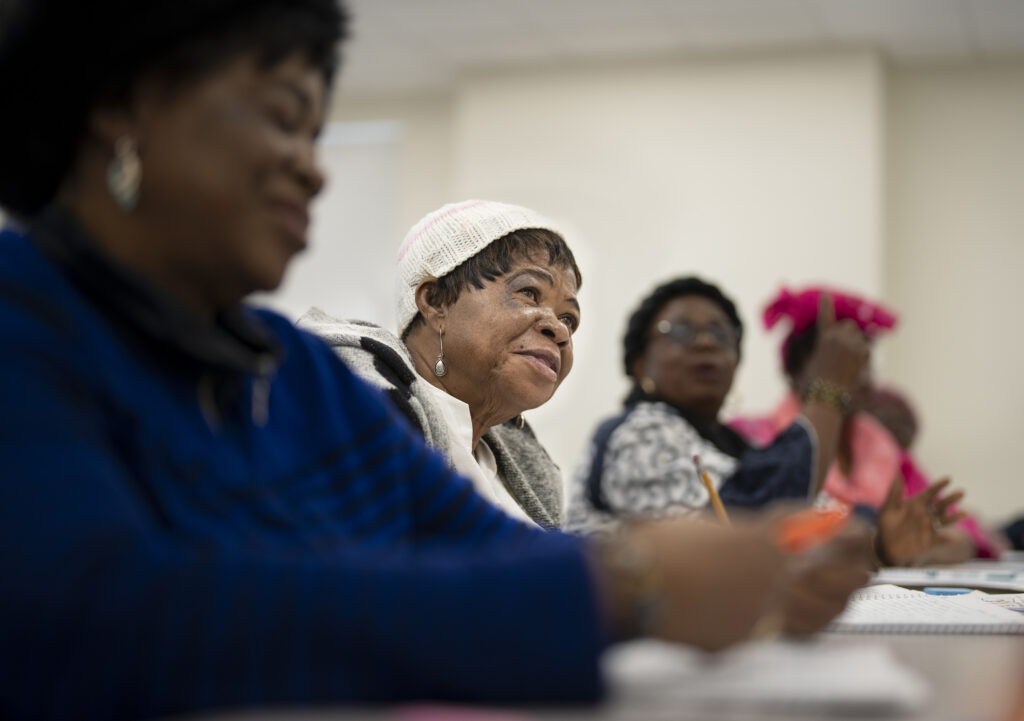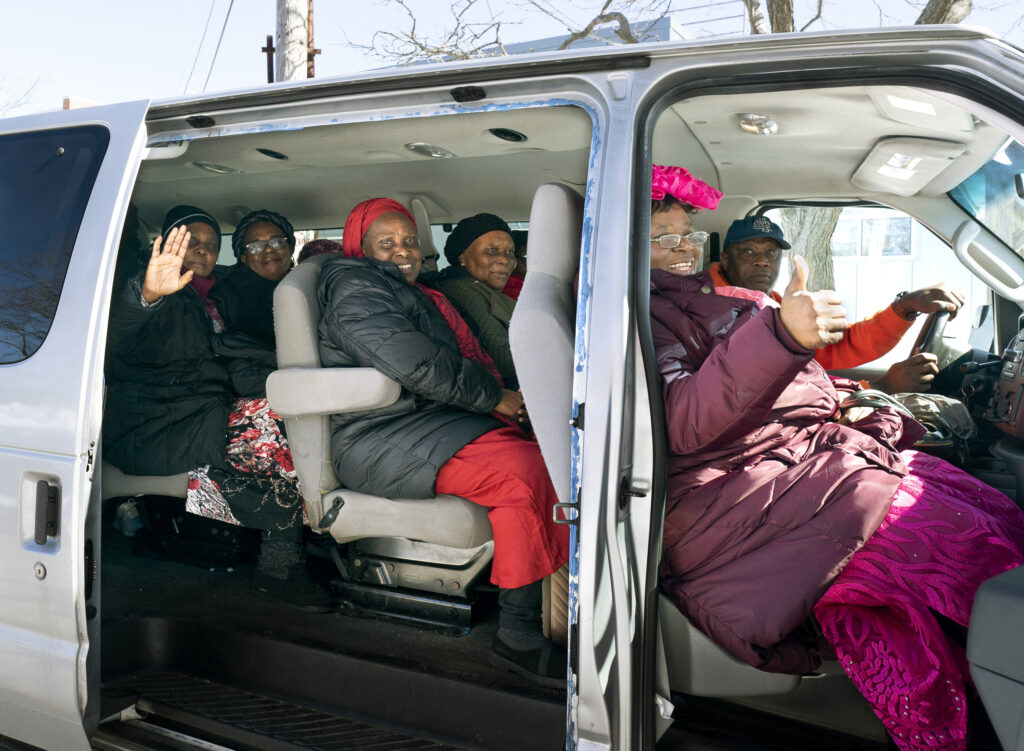
Beya Bantu listens to teacher Linda Bernard-Olson while working on an assignment in a language class at Southern Maine Community College in South Portland. Transportation to the class is provided by the nonprofit organization In Her Presence and funded through the Maine Charity Foundation Fund. Photos by Gregory Rec
The charitable group that started a foundation in 1921 to support Mainers in need could not imagine challenges the state might face more than 100 years later.
But the philanthropic people who started the Maine Charity Foundation knew a safety net was crucial then - just as it is today. Thanks to their foresight, the flexible fund transferred 30 years ago to the Maine Community Foundation now supports a wide range of transportation services that are essential in this rural state.
"It was very forward thinking of this group of citizens to create this fund, since there was no way for them to know what the charitable needs of Maine people would be in the future," said Laura Lee, vice president of community impact. "The Maine Charity Foundation Fund will be here to support Mainers for another 100 years."
Starting in 2017, Maine Charity grantmaking focused on organizations and programs that help older people thrive and age in their workplaces and communities with health, independence, and dignity.
With little to no public transportation infrastructure in many Maine communities, some older people who no longer drive struggle to keep critical medical appointments and maintain social connections.
People Plus, a nonprofit organization in Brunswick that promotes independence for older adults, saw how much impact Maine Charity grants could make. The nonprofit organization's Volunteer Transportation Network provides rides and grocery and pharmaceutical deliveries.
People Plus had only five volunteer drivers in 2011. With support from Maine Charity, the network has grown to 100 drivers and 700 riders.
Executive Director Stacy Frizzle says the transportation program is more than getting from point A to point B.
"It connects volunteers to homebound adults who might not see anyone else that week," Frizzle said. "It's a valuable mental health tool for keeping adults engaged in the community.
"The effort of our Volunteer Transportation Network demonstrates that older people in our communities are valued and appreciated," Frizzle said. "We all function better when we know we have a supportive community."

Last year, the community foundation widened Maine Charity support to include organizations that provide transportation for all Maine people who lack it.
Transportation also has been essential for In Her Presence, a Westbrook nonprofit organization led by and for immigrant women. In Her Presence offers programs to women from 17 countries, including career development, English courses, cooking, financial literacy, and life skills classes.
Executive Director and cofounder Claudette Ndayininahaze said 60 percent of the women who participate don't have transportation. This barrier makes adapting to life in Maine a challenge for immigrants and asylum seekers.
"Transportation is a pathway for sustainability into the workforce, cultural integration, and self-sufficiency for our women," Ndayininahaze said.
In the organization's early days, Ndayininahaze and other volunteers drove participants to programs. The nonprofit received its first grant for bus rental in 2017.
With support from Maine Charity, In Her Presence now transports 50 women per week through its bus service, picking up riders at their homes from Saco to South Portland. Mothers take their children on field t rips, while others attend classes and socialize.
Women with their own vehicles receive gas cards to offset high costs.
"The expanded Maine Charity Foundation Fund guidelines allowed us to support those new to Maine who want to be involved in their communities," said Lee. "It goes to show transportation is much more than having a ride. It's about the connection to our communities."





